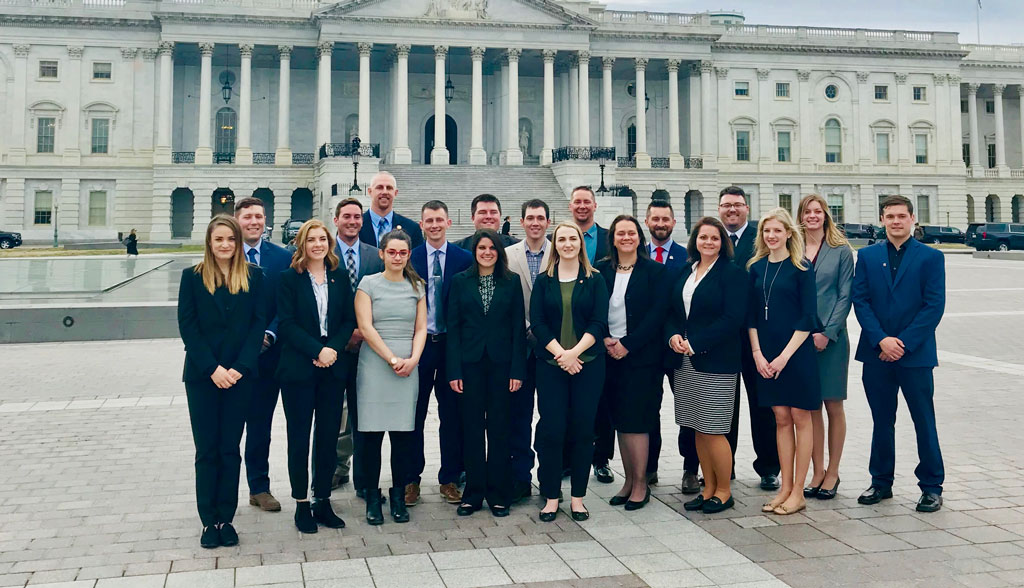On March 13, apple leaders from coast to coast will gather in Washington, D.C. for USApple’s annual Capitol Hill Day. With a dozen states participating, all facets of the industry will be represented.
Top issues to be covered include the importance of trade, particularly maintaining duty-free access to the North American market, implementing the new Farm Bill and the overwhelming need to reform our antiquated agriculture labor system.
These core issues have risen to the top of the priority list for growers from the east coast to the west and everywhere in between.
Large operations requiring 1,000 or more harvest workers experience the same anxieties about securing an adequate workforce as small operations that may only need to hire 10 workers to get the crop in.
The H-2A agricultural guest worker program has more than doubled in the past five years but does not have the infrastructure to support it. The program desperately needs to be modernized and reformed. At the time it was created, there was a mindset that foreign workers would displace native-born American harvest workers, but that time has long passed. Today, it is a well-known fact that on average each harvest worker creates and supports three year-round, full-time downstream jobs.
Important Farm Bill programs such as crop insurance and federal research programs also impact growers universally. Getting the Farm Bill implementation process right will be important as the apple industry relies on so many of these important programs.
Maintaining the gains achieved through the North American Free Trade Agreement (NAFTA) impacts not only those who export but also those who grow solely for the domestic market. Since NAFTA’s enactment, exports to Mexico have quadrupled, and those to Canada have doubled. If those apples aren’t exported, they stay in the domestic market, and everyone is impacted.
The Trump Administration renegotiated NAFTA, modernizing it and making important improvements. The new United States-Mexico-Canada Agreement (USMCA) will be considered by Congress later this year, and the apple industry is all in.
While pushing hard for the USMCA, we are also advocating for an end to section 232 tariffs placed on steel and aluminum originating from Mexico and Canada. The result has been retaliatory tariffs from Mexico at the pre-NAFTA level, and Canada could do the same at any time. For the USMCA to succeed, this trade skirmish must be resolved.
It is important that Members of Congress hear all of this and hear it directly from the voters in their districts. USApple staff brings these messages to the Hill on a nearly daily basis, but the direct participation of growers is what enables us to be so effective.
With that in mind, a big thank you to the growers and industry leaders taking time out of their busy schedules to travel to D.C. The work you are embarking on is important, and it can only be done by you.
For those unable to attend this time, there will be additional opportunities as legislation moves through Congress and grassroots efforts are needed to weigh in with key offices.








